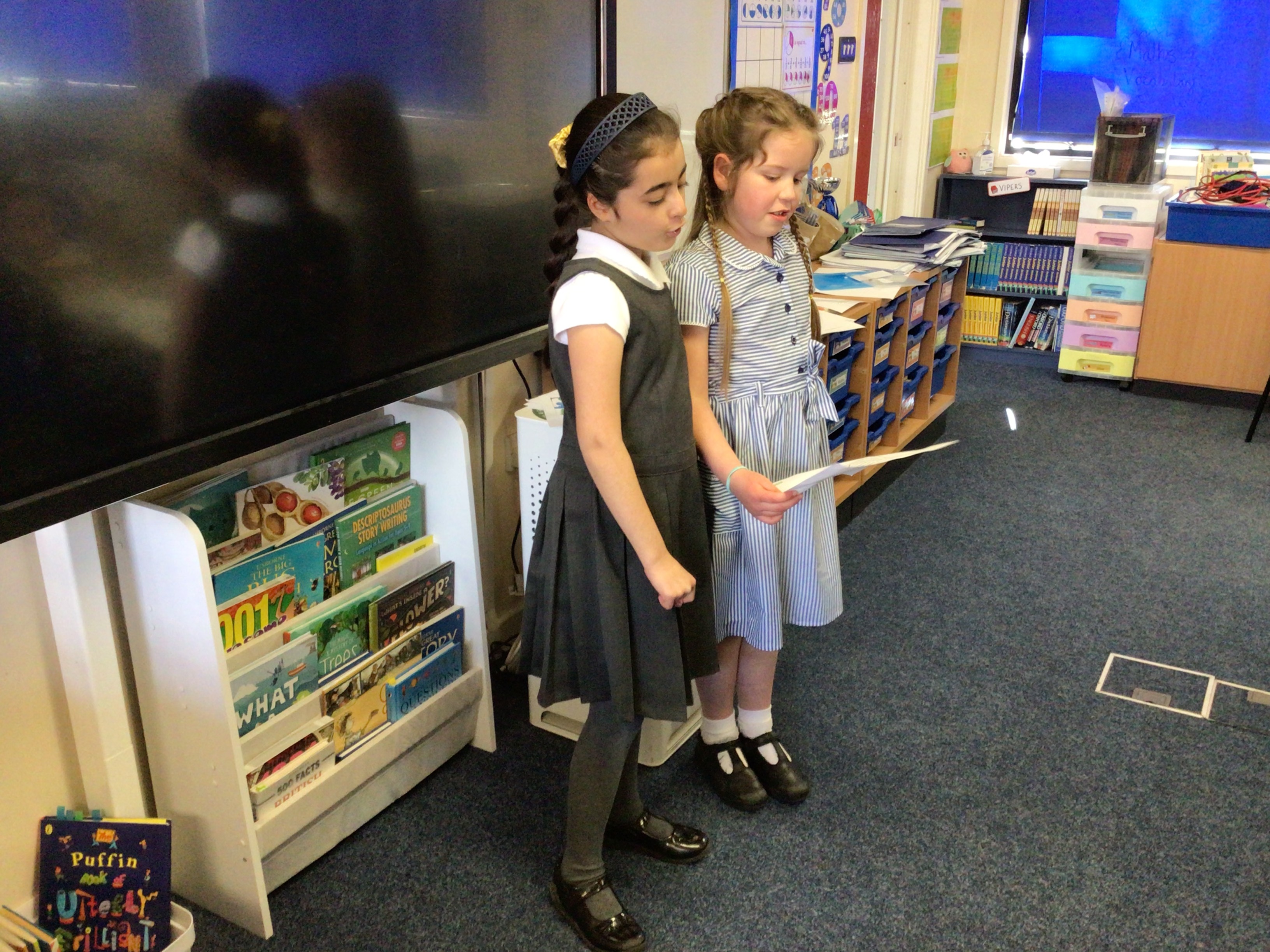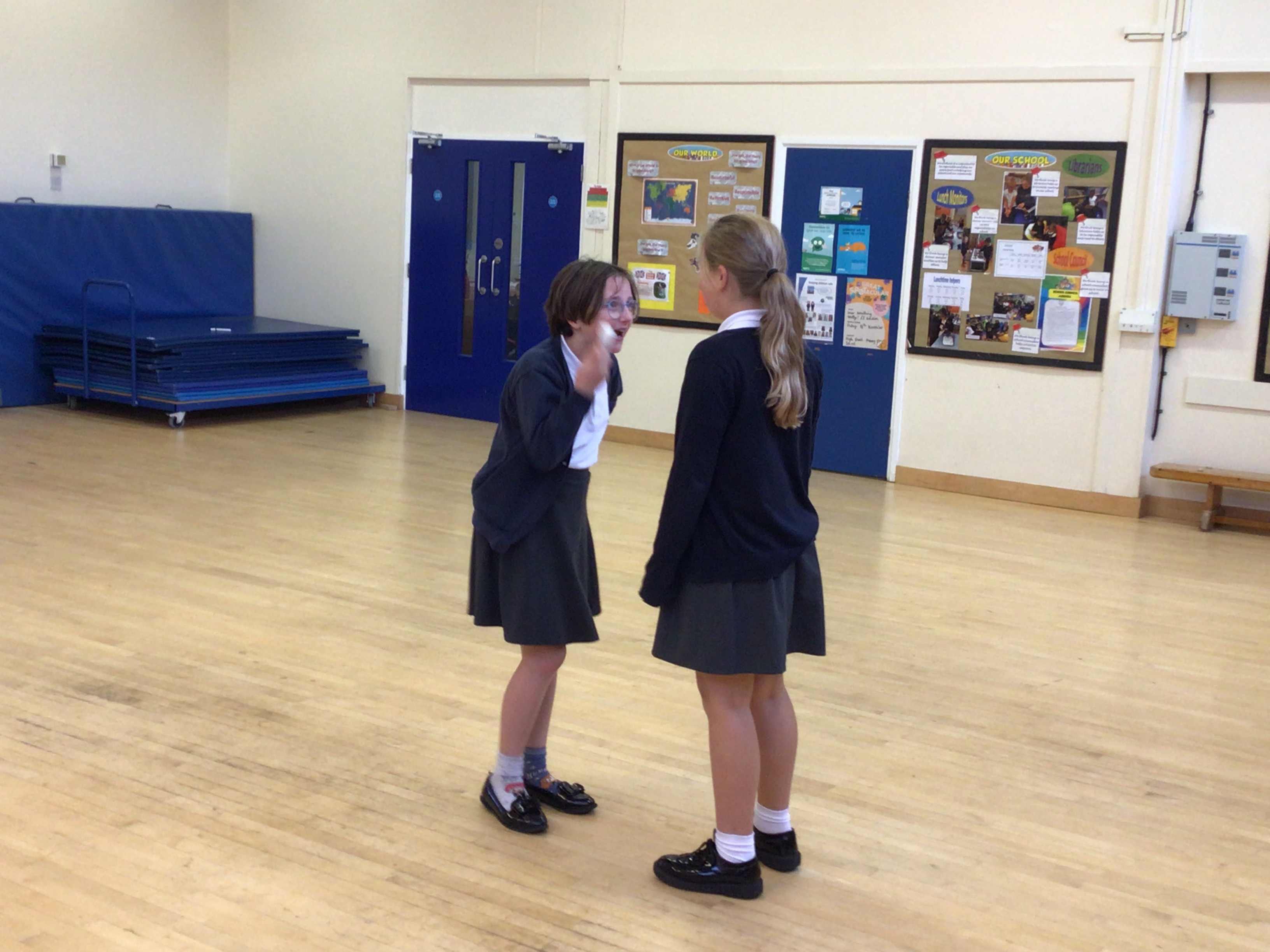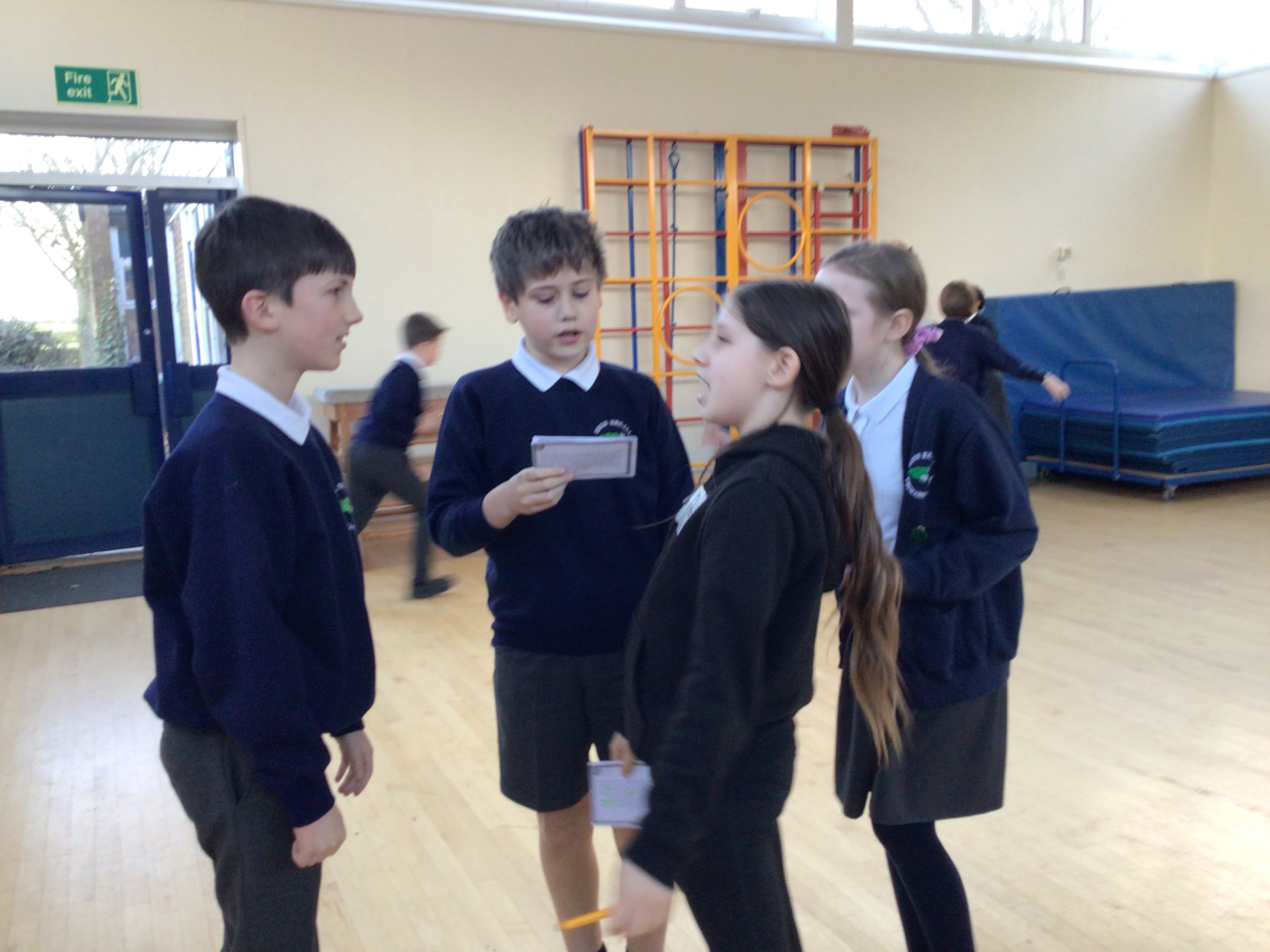Intent
What does speaking and listening look like at High Ercall?
The National Curriculum clearly states that the English Language is an essential, if not THE essential role of the primary school. At High Ercall Primary school, we want to give our children the ability to communicate effectively, and confidence in the art of speaking and listening, so that they can apply their skills and knowledge across the curriculum to debate, discuss, take on roles, ask and answer questions, listen and enjoy conversing. To enable this, the knowledge we teach the children enables them to use appropriate register, to choose from a range of vocabulary and to use standard English accurately in their spoken and written language.
The intent of our spoken language curriculum is to:
- enable our children to build on and acquire new substantive knowledge, by progressively teaching the arts of speaking and listening – to make formal presentations, to take on roles, to participate in debate and responding to questioning
- Use the key aspects of speaking and listening to underpin the development of reading and writing – in particular developing vocabulary and grammatical understanding
- follow the National Curriculum statutory requirements
- deliver a curriculum accessible to all to enable children to know more and remember more, building upon their starting points to develop competence and confidence in both the spoken language and their listening skills.
- recognise that drama also plays a key role in supporting the children’s development in speaking and listening – giving children opportunities to take on a range of roles, respond in role, rehearse, refine and respond to drama performances. All our children will visit the theatre at High Ercall – and enjoy responding to this experience.
- use taught skills and knowledge across the curriculum – for example: use the conventions of discussion and debate in history lessons or within the PSHE curriculum
- ensure that incidental teaching and learning in speaking and listening – in interactions every day in every lesson – builds upon the knowledge and skills of the children to speak and listen with clarity and purpose
Our curriculum has been built to include our key curriculum drivers:
- our school values, the 5Rs
- the role of active learning including the use of the outdoors
- building our children’s understanding of diversity.
In their time at High Ercall, we ensure the children access a wide variety of opportunities, mapped out in the reading, and writing curriculum, but also across all aspects of the curriculum using our medium term planning and the progression map for speaking and listening.
What do we want children to be able to do by the end of Year 6? How will this support the children in lifelong learning?
It is essential that by the end of their time at High Ercall in Year 6, our pupils can use discussion to learn – to elaborate, to explain clearly their understanding and ideas. We want our children to be competent and confident in speaking and listening – to make formal presentations, to converse on different levels, to learn poetry and participate in debate.
Implementation (link to policy)
How is the curriculum for speaking and listening organised and how do we teach it?
We teach speaking and listening explicitly as well as finding opportunities to reinforce and extend children’s developing skills. We embed this teaching in all subjects across the curriculum. This is particularly important as different subjects offer opportunities for different kinds of talk. Teachers plan for this within their medium term planning – and use the progression document to plan and target skills to be taught and specific knowledge which needs to be targeted.
There should also be opportunities, both planned and incidental, for children to revisit, apply and extend. Within a unit of literacy work, speaking and listening is an intrinsic element which allows the children to explore a text type, share ideas, learn texts, perform, debate and many other skills. Speaking and listening is planned and identified within both the reading and writing curriculum.
Pupils have access to a wide range of speaking and listening taught opportunities that include:
- Talking about their own experiences, recounting events
- Participating in discussion and debate across the curriculum
- Talk for writing within planned units over a half term
- Retelling and reciting stories and poems
- Expressing opinions and justifying ideas
- Listening to stories read aloud
- Presenting ideas to different audiences
- Taking part in school performances
- Responding to different kinds of texts
- Talking to visitors in school
- Listening to ideas and opinions of adults and peers
- Role-play and other drama activities across the curriculum.
- Use dramatic techniques, including work in role to explore ideas and texts
- Create, share and evaluate ideas and understanding through drama
- Visits to the theatre to appreciate and respond to dramatic productions
Children with SEND
Our children with any additional needs access the same high quality teaching and learning in speaking and listening as their peers. Our curriculum is fully inclusive. Children may also be supported through an Individual Provision Map with additional 1:1 support for speaking and listening needs. We work closely with the SALT services in Telford and Wrekin to support our children who may have difficulties with speech articulation, progression with vocabulary or processing language. We also work with the Sensory Inclusion Service which supports children with hearing loss in our school. Staff attend courses through these services to support specific children or groups. Specific individual targets would be written into a provision map.
Where necessary a differentiated curriculum is fully planned to take into account individual needs within the high quality whole class teaching. In speaking and listening, this could mean that a child:
- works in a quieter, small space to aid hearing or reduce sensory stress
- has extra time to rehearse and plan speaking activities
- pre-plans vocabulary being used within activities to aid understanding and articulation
This is monitored by our SENDCO - Sarah Roberts - and parents are fully engaged and involved.
Impact
How do we review learning in Speaking and Listening?
Speaking and Listening in our school is progressive and planned to meet the needs of all children. Ongoing assessment within lessons informs staff and enables the appropriate pitch for teaching and learning.
If children are keeping up with the curriculum, they are deemed to be making expected or more than expected progress. In addition, we measure the impact of our curriculum through the following methods:
- Informal assessments within lessons
- Progress in reading and writing
- Participation in whole class, guided group and individual reading
- Talking to the children about speaking and listening
- Participation in drama and role play, including productions
- Monitoring in lessons through observing interactions – including feedback to staff
- Professional development with teaching staff
- Provision maps and support for children with SALT needs
All of our staff, senior leaders and Governors are involved in measuring the impact of our Spoken Language curriculum in differing ways. This is planned through the School Development Plan, using our annual monitoring cycle and termly development plan to map out monitoring and review over the year.
Sarah Roberts, is our English Subject Leader. There is a clear monitoring cycle in place which evaluates teaching and learning, outcomes, pupil and parent voice. These outcomes feed into action planning to continually evaluate and improve our teaching and learning in the Spoken Language.




